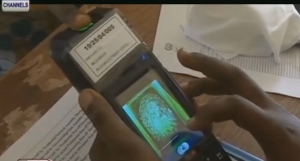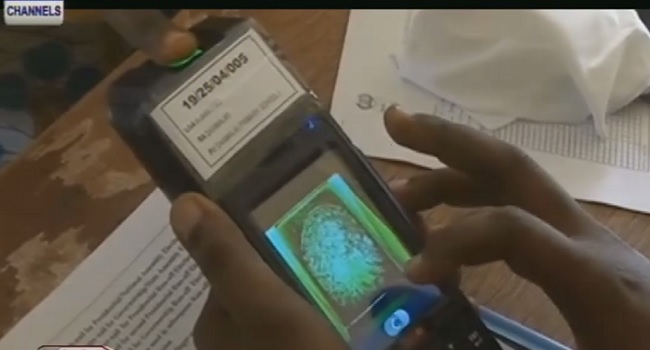
The Director of the institute, Professor Abubakar Momoh, made the appeal at a forum in Abuja, the Federal Capital Territory.
Professor Momoh explained that the meeting was convened to discuss the gains and challenges of the use of smart card readers in the 2015 elections.
“The whole idea of this round-table is to have a conversation around what went wrong with the card readers in the 2015 general election (and) what were the unintended consequences and backlash from the use of the card readers.”
The EI boss described the use of the card readers in the 2015 elections as a game changer.
He stated that the innovation of the technology had helped to reduce instances of over-bloated voters register.
A former INEC National Commissioner, Mr Nuhu Yakubu, also appealed to INEC to sustain the use of the card readers in future elections.
Mr Yakubu was of the belief that the technology had set a new standard for elections in Nigeria.
“The use of the smart cards and the companion card readers had become the minimum standard for the conduct of elections by the commission.
“This must not only be sustained but be improved upon in future elections,” he said.
Other resource persons at the event highlighted some of the challenges experienced with the use of card readers during the last general polls which include rejection of cards, poor battery issues and inability to capture fingerprints among others.




